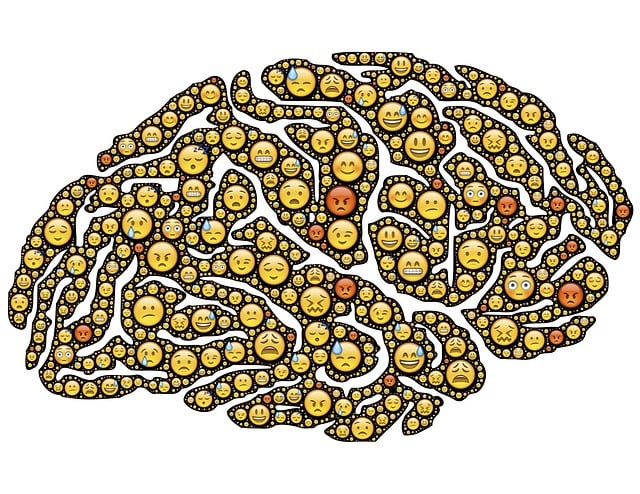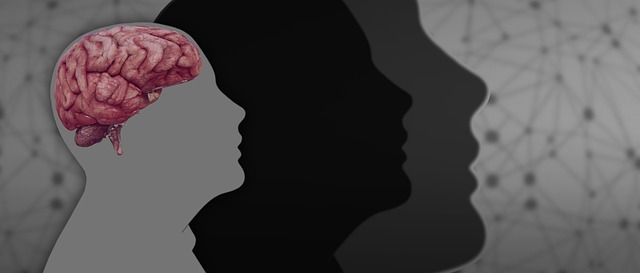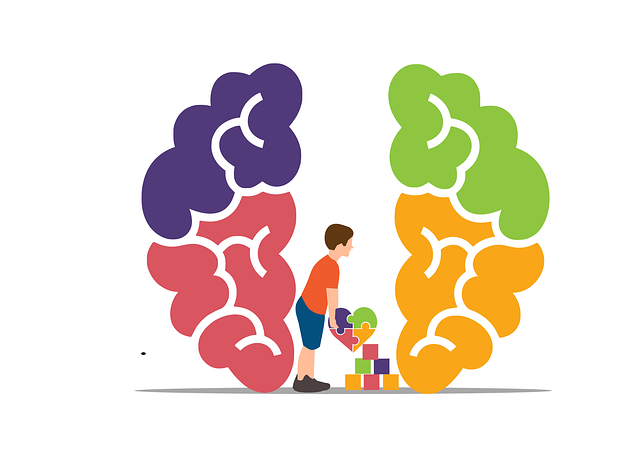In today's fast-paced world, mental wellness coaching is a growing priority, with personalized approaches like Aurora EMDR Certified Therapy gaining popularity. This therapy combines Eye Movement Desensitization and Reprocessing (EMDR) techniques with Self-Awareness Exercises and Mindfulness Meditation to effectively address trauma and anxiety. By incorporating evidence-based practices into coaching curricula, mental wellness programs can equip coaches to guide clients through diverse therapeutic modalities, catering to varied needs and fostering holistic development. Aurora EMDR Certified Therapy offers powerful tools for trauma healing and stress reduction, leveraging research-backed principles to enhance emotional well-being and improve quality of life. Comprehensive success measurement using qualitative and quantitative data collection methods, including regular Aurora EMDR assessments, allows for progress tracking and continuous program refinement.
Mental wellness coaching programs are gaining prominence as a vital tool for personal growth and resilience. This article explores the evolving landscape of mental wellness coaching, highlighting the increasing demand for such services. We delve into the unique role of Aurora EMDR Certified Therapy in enhancing coaching effectiveness. Through a structured approach, we discuss designing comprehensive curricula, implementing evidence-based techniques, and measuring success in coaching sessions. By embracing these strategies, coaches can significantly impact client outcomes.
- Understanding Mental Wellness Coaching: A Growing Need
- The Role of Aurora EMDR Certified Therapy in Coaching Programs
- Designing Effective Coaching Curricula and Modules
- Implementing Evidence-Based Techniques in Coaching Sessions
- Measuring Success: Assessment, Tracking Progress, and Client Outcomes
Understanding Mental Wellness Coaching: A Growing Need

In today’s fast-paced world, mental wellness has become a paramount concern for individuals across various demographics. The demand for effective coaching programs that address emotional and psychological challenges is on the rise, especially as we recognize the profound impact of mental health on our overall well-being. Mental Wellness Coaching offers a personalized approach to empowerment, helping clients develop essential skills for managing stress, anxiety, and other common mental health issues. By combining evidence-based practices with holistic strategies, coaches create supportive environments that foster growth and resilience.
One such effective method gaining traction is the integration of techniques like Eye Movement Desensitization and Reprocessing (EMDR), which has been recognized for its ability to facilitate healing from trauma. Aurora EMDR Certified Therapy, coupled with Self-Awareness Exercises and Mindfulness Meditation, provides a comprehensive toolkit for coaches to assist individuals in navigating their mental health journeys. Enhancing Emotional Intelligence becomes a cornerstone of these programs, enabling clients to understand and manage their emotions effectively, thereby improving relationships and overall life satisfaction.
The Role of Aurora EMDR Certified Therapy in Coaching Programs

Aurora EMDR Certified Therapy plays a pivotal role in modern mental wellness coaching programs. This therapeutic approach, rooted in Eye Movement Desensitization and Reprocessing (EMDR), has been shown to be highly effective in addressing a range of mental health concerns, including trauma and anxiety. By combining exposure therapy with bilateral stimulation—such as side-to-side eye movements or tactile taps—Aurora EMDR Certified Therapists help clients process and resolve distressing memories and emotions.
This innovative approach not only enhances traditional coaching methods but also contributes to global Mental Health Awareness and reduces the Stigma associated with mental illness. By integrating Aurora EMDR into their practices, coaches can facilitate Anxiety Relief for their clients, enabling them to lead more fulfilling lives. The combination of empathy, evidence-based techniques, and a holistic understanding of mental wellness makes Aurora EMDR Certified Therapy an invaluable asset in the ever-evolving landscape of coaching programs.
Designing Effective Coaching Curricula and Modules

When designing effective coaching curricula for mental wellness programs, it’s essential to incorporate evidence-based practices such as Aurora EMDR Certified Therapy. This approach ensures that coaches are equipped with the latest techniques proven to aid individuals in overcoming trauma and enhancing emotional well-being. A well-structured curriculum should include both theoretical knowledge and practical skills training, allowing coaches to guide clients effectively through various therapeutic modalities.
The development of modules focused on different aspects of mental health is a strategic way to cater to diverse client needs. For instance, modules can be dedicated to stress management, resilience building, or emotional regulation techniques. By organizing the coaching program into such segments, instructors enable participants to gain specialized knowledge and skills relevant to their specific areas of interest or challenges. This tailored approach aligns with the evolving demands of mental health education programs design, fostering holistic development within the coaching community.
Implementing Evidence-Based Techniques in Coaching Sessions

In developing mental wellness coaching programs, incorporating evidence-based techniques is paramount for effective client outcomes. Techniques like those employed in Aurora EMDR Certified Therapy have proven successful in addressing a range of mental health concerns. These sessions leverage powerful tools to help individuals process traumatic memories and reduce stress responses, fostering resilience and emotional well-being.
The Mind Over Matter Principles, backed by extensive research, guide these coaching interventions. By integrating Trauma Support Services within the coaching framework, practitioners can offer specialized care for those navigating past traumas. Furthermore, focusing on Stress Reduction Methods allows coaches to equip clients with practical strategies to manage daily stressors, promoting long-term mental wellness and enhancing overall quality of life.
Measuring Success: Assessment, Tracking Progress, and Client Outcomes

Measuring success in mental wellness coaching programs is a multifaceted process that involves rigorous assessment, ongoing tracking of client progress, and meticulous examination of outcomes. At its core, this includes both qualitative and quantitative data collection methods. For instance, utilizing Aurora EMDR Certified Therapy techniques can facilitate profound changes by helping clients process traumatic memories and reduce symptoms associated with stress disorders. This approach not only improves emotional well-being promotion techniques but also provides tangible metrics for progress evaluation.
Regular assessments allow coaches to identify specific areas of improvement and tailor interventions accordingly. By tracking progress over time, they can demonstrate the effectiveness of the program, pinpointing which components contribute most significantly to positive client outcomes. Ultimately, this data is crucial in refining coaching strategies and ensuring that the program continues to meet the evolving needs of participants, fostering a culture of continuous improvement and enhanced mental wellness.
Mental wellness coaching programs are evolving to meet the growing demand for accessible mental health support. By integrating evidence-based techniques, such as Aurora EMDR Certified Therapy, coaches can facilitate effective healing and personal growth. Careful curriculum design, combined with assessment tools that track progress and client outcomes, ensures these programs deliver tangible results. As the field advances, maintaining a focus on evidence-informed practices will continue to be key to successful mental wellness coaching.














